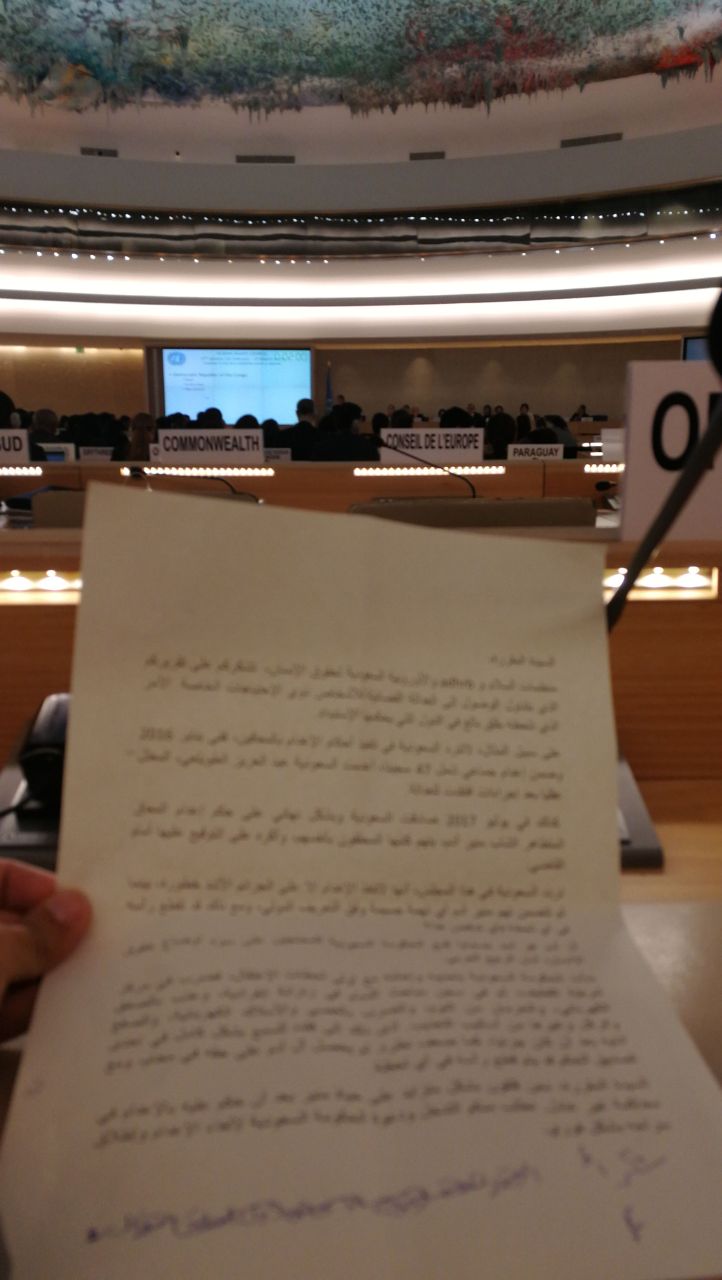On Wednesday 7 March 2018, during the 37th session of the Human Rights Council, Duaa Dhainy of the European Saudi Organisation for Human Rights delivered an oral intervention on behalf of ADHRB during the Item 3 Interactive Dialogue with the Special Rapporteurs on albinism and disabilities. In her intervention, she addressed the case of Saudi citizen Munir Al-Adam, a young, disabled man who has been sentenced to death and is at imminent risk of execution.
Madam Rapporteur,
Alsalam, ADHRB, and the European Saudi Organisation for Human Rights, thank you for your report on access to justice for people with special needs, which we observe with great concern, especially in countries ruled through autocracy.
For example, Saudi Arabia carries out death sentences against disabled people. In January 2016, in a mass execution of 47 prisoners, Saudi Arabia executed Abdul Aziz al-Toaili’e, a mentally disabled man, after judicial proceedings that failed to bring justice.
Also in July 2017, Saudi Arabia ratified the death sentence of the disabled young demonstrator Munir Al-Adam, on charges that the prosecutors themselves wrote, and that he was forced to sign in front of the judge.
Saudi Arabia has continually claimed in this Council that it carries out executions only for the “most serious crimes,” however, the charges against Munir Al-Adam do not resemble any serious charges according to the international definition. Despite this, Munir’s execution may be cut at any moment. Al Adam is only one of the victims of the Saudi government’s repression of protesters and one example of its human rights abuses during the Arab Spring.
The Saudi government began to torture and humiliate Munir Al-Adam from the first moments of his detention. He was tortured in the Qatif police station, then in Dammam prison in solitary confinement, with electric shocks, sleep deprivation, beatings with sticks and electric wires, all while guards prevented him from eating and drinking. This torture led him to lose his hearing completely in one ear after he was already hard of hearing and suffering weak eyesight. Al Adam was denied from having a lawyer, and when his trial began, the prosecution did not present any evidence against him other than statements forced upon him by torture.
Madam Rapporteur, we are increasingly concerned about the life of Munir after he was sentenced to death in a blatantly unfair trial. We ask you to intervene and call on the Saudi government to abolish the execution and release him immediately.
Thank you





